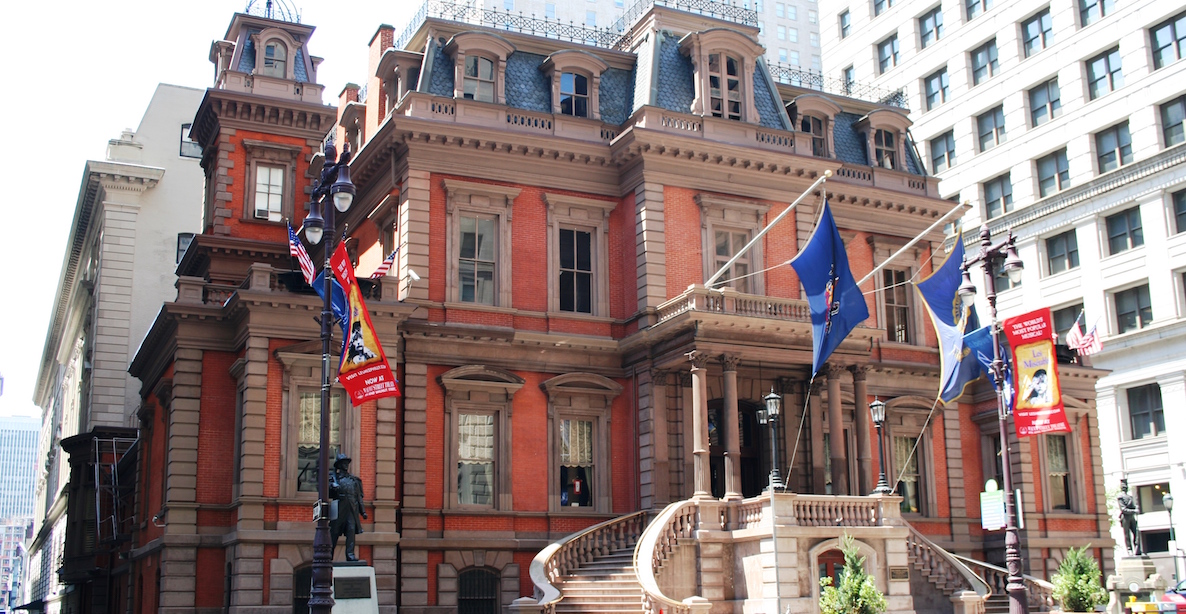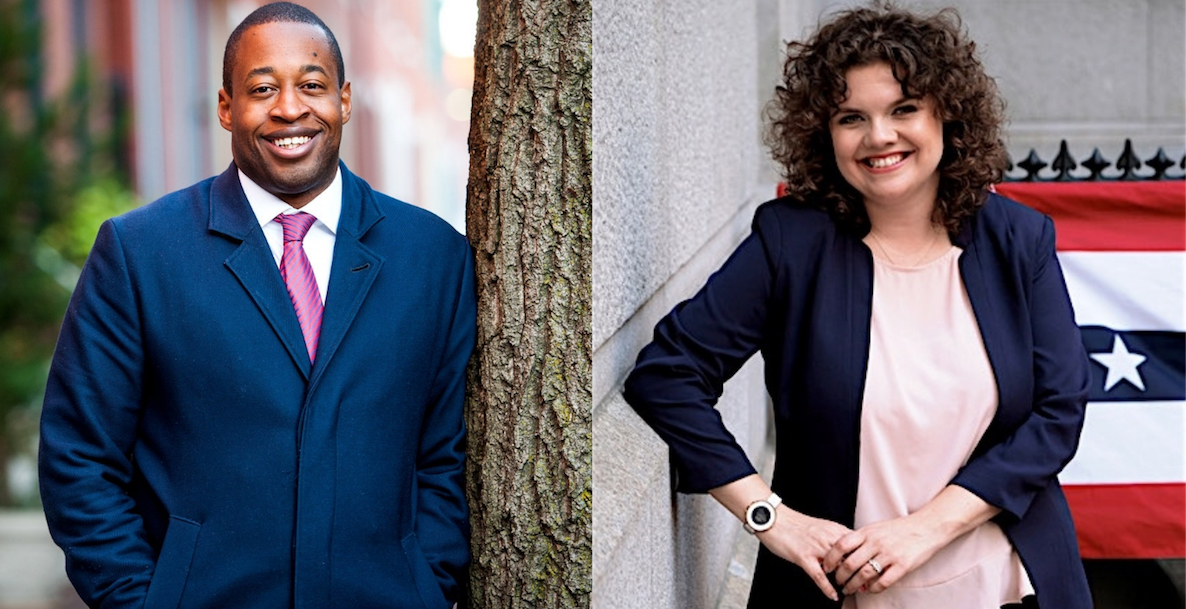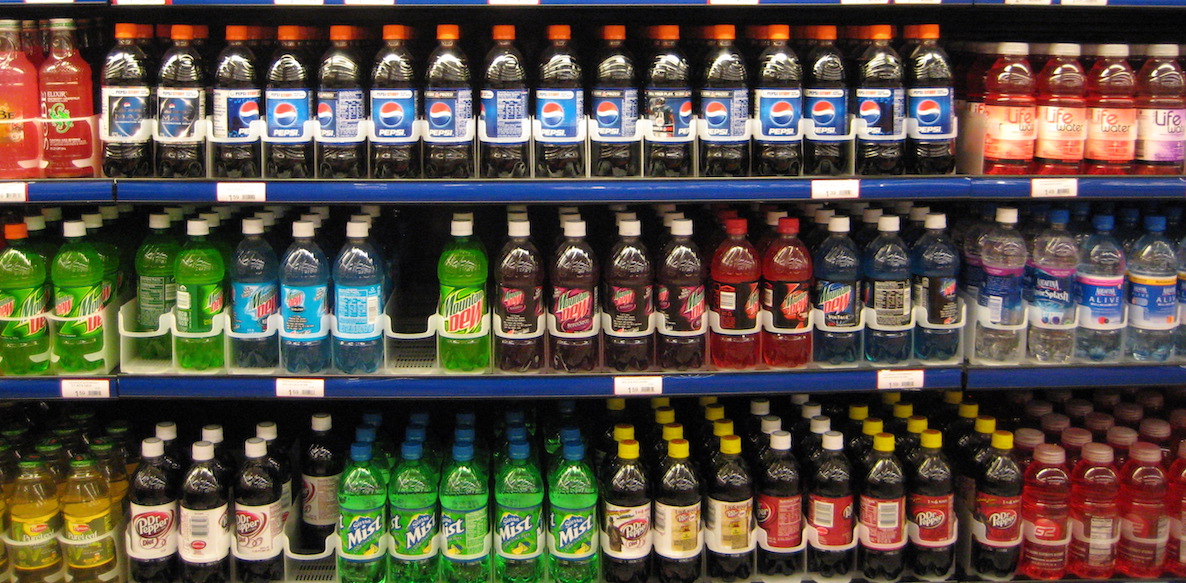Last week, in the aftermath of the announcement that Jeff Brown would be closing his full-service grocery store at 67th and Haverford as a result of the city’s sweetened beverage—or soda—tax, I wrote that, in effect, the Kenney administration, in the guise of progressivism, seems to be waging a war on poor people.
How progressive are you, after all, if your tax policy is now relegating a neighborhood to food desert status (defined by the USDA as one where residents have no access to a full service grocery with fresh fruits and vegetables within a one mile radius), and if the Black Clergy has reversed itself and now opposes said tax?
Mayor Kenney’s response has been, Trump-like, to attack Jeff Brown, despite Brown’s progressive bona fides. (Tellingly, the Mayor hasn’t similarly attacked the Black Clergy). Kenney has called Brown a “cry baby” and his spokesman has chided Brown for buying a pricey Rittenhouse Square home. Moreover, the administration asserts that Brown is, in effect, lying, and it points to a still unreleased Ivy League study funded by soda tax proponent Bloomberg Philanthropies as proof that Philadelphia grocery stores haven’t suffered due to the tax. (On Sunday at 11:30 am, Brown and Kenney Chief of Staff Jim Engler are scheduled to be interviewed on Channel 10’s At Issue public affairs show.)
Cards on the table: I was initially agnostic about the tax, and I remain convinced it is intended to fund admirable goals—pre-K and rebuilding playgrounds and rec centers. But it has been hard to wade through the spin and find out some basic truths. That’s what happens in a pricey, high-stakes, political debate: Both sides—the soda lobby as well as the administration—trot out their own studies and talking points, and facts tend to get lost or obscured in the resulting fog of war.
The study found a 42 percent decline in sales of the taxed beverages in city grocery stores—a drop-off that is fully offset by an increase in purchases of taxed beverages at stores up to 6 miles outside city limits.
Well, after my piece last week, I became aware that actually there is an independent academic study of Philadelphia’s soda tax, and I waded through it, trying to wrap my head around points like this one:
“Formally, we estimate regressions based on the following general structure: yst = α(Phillys × AfterTaxt) + γs + δt + εst, where the unit of observation is a store/week (s, t) combination. γs and δt are store and week fixed effects and εst denotes the regression error.” Okay, glad we got that cleared up.
But, once you get past all the academic gobbledygook, it becomes clear that Brown’s point of view, and not the Mayor’s, is the one supported by the facts. Turns out, there are smarter, more progressive ways to fund pre-K and Rebuild.
Before we get to that study, though, a couple of points of emphasis:
1. Jim Kenney’s history on the soda tax is full of twists and turns. He opposed Mayor Nutter’s two attempts to tax sweetened beverages; the purpose of the first had been to combat obesity, while the second try would have helped fill a gap in public school funding. In both cases, Kenney was a no vote. When he ran for Mayor, he made pre-K and Rebuild significant parts of his platform, but he pledged that he wouldn’t have to raise taxes. Instead, he explained, innovative “Zero Based Budgeting” would result in the $90 million he’d need for these programs. Lo and behold, for someone so eager to (appropriately) criticize President Trump for his broken promises and lies, Kenney’s Zero Based Budgeting plan has gone the way of Mexico funding the border wall.
![]()
2. Last weekend, The Wall Street Journal published a devastating editorial on Kenney’s soda tax, positing that Brown’s bottom-line troubles as a result of the tax translates to “fewer opportunities for workers with a criminal record. Mr. Brown’s supermarkets employ more than 600 of them, with the majority in Philadelphia. Some of the ex-cons have become his most-valued employees…If ShopRite hadn’t taken a chance on him, ‘I’d probably be dead, to be honest,’ says Anthony Jackson, who was in and out of prison from his teens until his late 30s. When he tried to find lawful work, no one would hire him—until he applied at one of Mr. Brown’s stores. ‘I replaced my crack cocaine with broccoli and macaroni and cheese, which are the top sellers,’ Mr. Jackson says. Over nine years he’s worked his way up to frozen-food manager. “The Brown family saved me. They showed me something different, that I could be a man in society,’ he says.”
This is war, and job one in war is to spread that fog. So the missive back from the administration doubles down on—surprise, surprise—calling into question the motives of any study whose conclusions differ from what it wants to be the case.
The Kenney response? “If you can’t run a supermarket without soda sales, then something is wrong with your business practices,” the Mayor said.
It’s that kind of dismissive attitude that doesn’t really square with progressivism. And Kenney’s continual personal attacks suggests an inability to win a policy debate on the merits of his argument. This should go without saying, but the polarized nature of this debate makes it worth underscoring: Despite Mayor Kenney’s efforts to stoke populist resentment against critics of his many taxes, opposing a tax that disproportionately affects poor people does not make one a corporate apologist or a shill for the soda industry.
3. Declining soda sales are not forcing Brown’s store to close. Soda sales are only down 3 to 4 percent, but overall sales are down 23 percent. Why? Given the store’s proximity to City Line Avenue, customers who drive a few miles into Montgomery Avenue for their sweetened beverages tend to do all their shopping there. Walking the aisles of Brown’s soon-to-close ShopRite and talking to the predominantly African-American shoppers there, I was struck by how many did not have access to wheels. They’d walk to Brown’s ShopRite three or more times a week (having to carry bags home means having to make more trips per week) and now didn’t know what they were going to do. They’ll literally be stranded in the desert. It was stark proof of just how regressive the soda tax is, as none other than Bernie Sanders maintained during the 2016 primaries.
![]()
That said, the Sanders and Hillary Clinton debate—she supported the tax— was also part of our often confusing political back and forth. Which gets us to that recent study, the first objective proof, seems to me, that concludes the soda tax hardly qualifies as progressive.
It’s a dense tome, as the gripping name implies: The Impact of Soda Taxes: Pass-Through, Tax Avoidance, and Nutritional Effects, by Stephan Seiler of Stanford, Anna Tuchman of Northwestern, and Song Yao of the University of Minnesota.
The authors find that the tax has been passed on to consumers at a rate of 75 to 115 percent, which corresponds to a 30 to 40 percent price hike. That has led to a 42 percent decline in sales of the taxed beverages in city grocery stores—a drop-off that is fully offset by an increase in purchases of taxed beverages at stores up to 6 miles outside city limits. And they conclude that the tax is highly regressive, disproportionately harming low income consumers.
You can watch Song Yao, one of the authors, expound upon the findings here. For me, the bottom line is this: “We draw several lessons about the effectiveness of local sweetened-beverage taxes from these analyses,” the authors write. “First, the tax was ineffective at reducing consumption of unhealthy products. Second, in terms of revenue generation, the tax was only partly effective due to consumers substituting to stores outside of Philadelphia. Third, low income households are less likely to engage in cross shopping, and instead are more likely to continue to purchase taxed products at a higher price at stores in Philadelphia. The lower propensity for low income households to avoid the tax through cross-shopping leads to a relatively larger tax burden for those households. In summary, the tax does not lead to a shift in consumption towards healthier products, it affects low income households more severely, and it is limited in its ability to raise revenue.”
Even though I knew it might send us down a rabbit hole of spin, I reached out to the Kenney administration to see if it had any knowledge of, or response to, this latest study. A spokesman responded: “These are very interesting findings. In no way does the Kenney administration want to impose a tax that places an undue burden upon the poor, and we support any efforts to have an intellectually honest debate about the effects of this or any other tax. That’s why we support Councilman Domb’s call for hearings into the efficacy of the soda tax and we hope the authors of this study will present their findings there and be open to questioning.”
![]()
KIDDING! You didn’t really think we’d get that kind of response, did you? This is war, after all, and job one in war is to spread that fog. So the missive back from the administration doubles down on—surprise, surprise—calling into question the motives of any study whose conclusions differ from what it wants to be the case.
“We are highly skeptical of the conclusions of this study, which gives a very incomplete picture of the impact of the beverage tax,” wrote Kenney’s spokesman. “The Seiler study includes only approximately 25 percent of beverages purchased in Philadelphia. It excludes many supermarket chains, all restaurants, all corner stores and all other stores that do not have a data agreement with its data source, IRI…The authors base their study on data from retail stores that is normally confidential and not available to researchers. This makes us question how the researchers obtained the data and whether the data provided might have been selected to support an industry viewpoint…The paper claims that the tax has had a disproportionate impact on low income Philadelphians, but the authors don’t have the data to back that up.”
Isn’t it time for the mayor to set aside the personal attacks and try problem-solving for a change? You’d think he would view Pre-K and Rebuild as too important to jeopardize with flawed funding. Or is his loyalty to the tax greater than his fidelity to the programs it was meant to fund?
As for the first critique—that the study includes only approximately 25 percent of beverages purchased in Philadelphia—that seems to be accurate, but not entirely relevant when the debate, as it pertains to food deserts, is about large grocery chains, which IRI data does include. As for the other two points—questioning where the data came from and asking for the data that shows the tax to be regressive, well, all the more reason to invite the scholars here for a hearing, right?
Finally, the administration maintains that there have been three other objective academic studies, and then cites two that ought not to qualify. The Penn/Harvard study has not even been released; it’s the one paid for by soda tax proponent Bloomberg Philanthropies. And another study cited is a “working paper” that was funded by the Robert Wood Johnson Foundation, which has supported the soda tax.
This isn’t to say this latest study is utterly defensible. It is to suggest, however, that it does appear to be independent of either side in the debate. The soda lobby says they knew nothing of it and, in its response to me, the administration was unable to come back and definitively claim anything to the contrary. So it seems like we should pay attention to it, no?
Let’s role play here. We’re on a jury, you and me, and we’ve been charged by the judge to determine whether Philadelphia’s soda tax is the best, most equitable way to fund these good programs. And we have to decide by the preponderance of the evidence.
Well, the facts would seem to be in, no? When you have a food desert store closing, when the Black Clergy has revoked its support, and when an independent study has concluded that the tax is ineffective and unfairly burdensome to poor people…to reach any other verdict would require that all three witnesses—Brown, the Black Clergy, and researchers from three prominent schools—were lying. You’d have to be a grand conspiracy theorist.
So isn’t it time for the mayor to set aside the personal attacks and try problem-solving for a change? You’d think Mayor Kenney would view Pre-K and Rebuild as too important to jeopardize with flawed funding. Or is his loyalty to the tax greater than his fidelity to the programs it was meant to fund? Kenney no doubt loved the national notoriety that came from being the first big city mayor to have pushed through a soda tax. But now the facts are in. It’s time to come up with a more reliable funding mechanism, preferably one that the average Philadelphian doesn’t have to bear. Hmmmm…Zero Based Budgeting, anyone?
Photo via Wikimedia Commons






